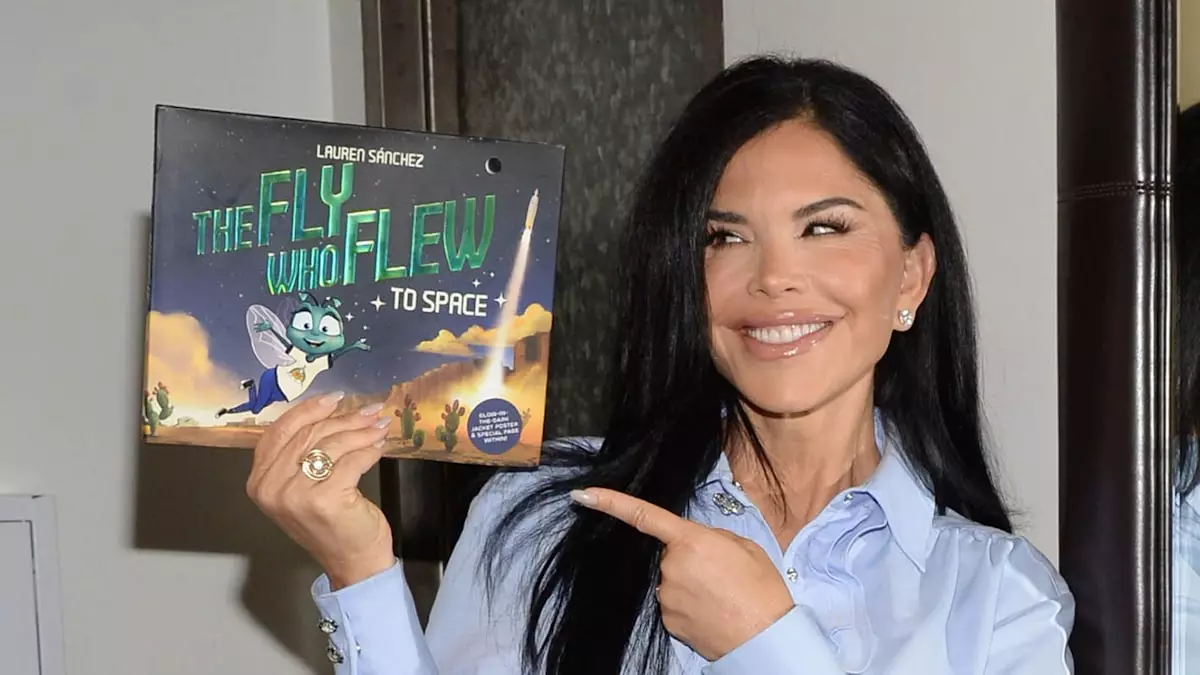In a provocative turn of events, Lauren Sanchez, an accomplished media personality and the fiancée of Amazon founder Jeff Bezos, is embroiled in a lawsuit alleging “betrayal and theft” filed by her former yoga instructor, Alanna Zabel. The lawsuit, which has captured the attention of media outlets, details claims stemming from a professional relationship that existed between Sanchez and Zabel from 2007 to 2010. As the situation unfolds, it highlights the legal complexities surrounding intellectual property and personal relationships in the creative field.
The crux of Zabel’s allegations revolves around a concept for a children’s book titled “Dharma Kitty Goes to Mars,” proposed during her outreach to Sanchez in 2022. Zabel claims that Sanchez has been leveraging their shared ideas, spiraling into the release of Sanchez’s recent children’s book, “A Fly Who Flew to Space.” According to Zabel, over 60% of the content in Sanchez’s book mirrors her original ideas, raising substantial intellectual property concerns.
In her legal documents, Zabel expresses that the supposed appropriation of her work has inflicted severe emotional distress on her. She portrays Sanchez as a figure marked by jealousy, suggesting that this emotional turbulence is rooted in Sanchez’s past behaviors during their teacher-student relationship. Although Zabel does not enumerate specific actions of jealousy, her assertions paint a picture of a rivalry that transitioned into a legal debacle. This calls attention to how personal relationships can become intertwined with professional accountability, an issue faced by many in collaborative industries.
Zabel’s allegation that Sanchez has consistently sought to emulate her character, described as authentic and independent, further complicates the narrative. The motivation behind such actions invites scrutiny into Sanchez’s true intentions—was it merely professional admiration, or did it evolve into a more questionable appropriation of Zabel’s identity and ideas?
The unfolding drama is not just a courtroom affair; it is capturing the public’s imagination and igniting discussions about originality in creative work. Zabel has taken to social media to rally her followers, encouraging them to support her original work by purchasing “Dharma Kitty Goes to Mars.” The internet’s swift response to these allegations reveals the modern landscape of accountability in authorial disputes, where social media can amplify voices and compel public opinion.
In an era where the lines between inspiration and imitation are often blurred, this lawsuit raises critical questions about authorship and creative integrity. Cultural and industry standards about intellectual property raise essential dialogues about what constitutes theft versus inspiration—a concept that remains subjective.
While the public waits for Sanchez’s official response, which has been sought by various media outlets, her ongoing promotional activities for her new book reveal her commitment to her artistic endeavors. At a recent tour stop, Sanchez shared an emotional anecdote about her own struggles with dyslexia, deepening the conversational fabric of her book and relating it back to her personal journey. This narrative depicts a compassionate side to Sanchez, as she navigates the complexities of her own challenges while promoting her work.
As Sanchez continues to promote “A Fly Who Flew to Space,” her motivations could be viewed through different lenses. On the one hand, she aims to inspire children with stories of perseverance against learning disabilities; on the other, she stands accused of misappropriating the very essence of another’s creativity.
The legal battle between Sanchez and Zabel serves as a cautionary tale within creative industries where collaborative ideas flourish. It emphasizes the vital importance of clear communication and mutual respect among creators. As the case progresses, it will be interesting to observe not only its implications for the key players involved but also the broader conversations around intellectual property, emotional well-being in competitive fields, and the critical need for ethical considerations in creative collaborations. The story of Sanchez and Zabel undeniably illustrates a complex interplay of relationships, artistic expression, and the unpredictable nature of creative endeavors.

